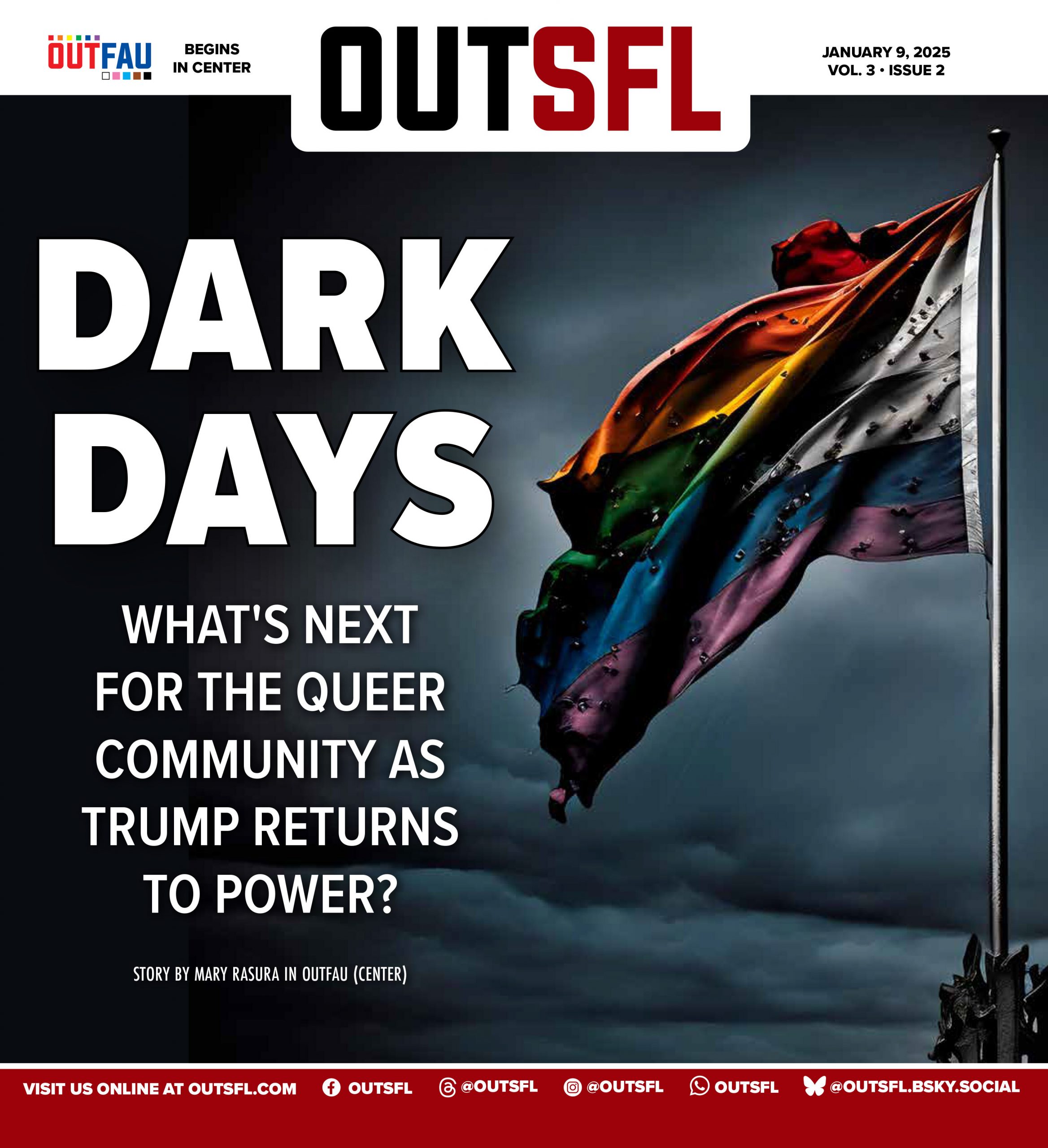
Trump victory spurs backlash against ‘woke’ LGBTQ, ‘Latinx’ communities
by Joe Siegel
Perhaps as a byproduct of Donald Trump’s November election victory, a conservative backlash directed at the LGBTQ and Latino communities has resulted in threats and intimidation.
“The FBI is investigating reports of offensive and threatening text messages targeting high school students, as well as members of Latino and LGBTQIA+ communities,” reported The Pride LA. “Some recipients have reported messages falsely claiming they have been selected for deportation or instructed to report to a re-education camp. Similar communications have also been received via email, authorities said.”
The newspaper continued, “While no violent acts have been linked to the messages, the FBI is working with the Department of Justice Civil Rights Division to evaluate incidents. The agency is also collaborating with law enforcement partners, community leaders, and organizations in academia and faith sectors to address the issue.”

“We take these reports seriously and are committed to investigating these troubling communications,” the FBI said in a statement. GLAAD noted that “re-education camps” may allude to the discredited and dangerous practice of so-called “conversion therapy,” which is now banned in at least 22 states and 115 municipalities.
Editors of LGBTQ media are adjusting their content to fit the new reality.
“Seattle Gay News has heard of minorities being threatened via text messages, including threats of sending LGBTQ+ people to camps,” said Hannah Saunders, SGN editor. “I have not heard of this specifically happening in Seattle, but I will be on the lookout for it. The same thing goes for Latinos in our area. But that isn’t to say that it isn’t happening here, I just can’t confirm.”
Tammye Nash, managing editor of the Dallas Voice, noted there have been no threats directed toward the LGBTQ community in Texas, but believes there could be some in the future.
In Ohio, anti-LGBTQ incidents rose a whopping 189 percent in just the last two years, said Ken Schneck, editor of The Buckeye Flame, based outside Cleveland, citing a 2024 report from GLAAD.
“Especially given Ohio’s smaller population compared to states like Texas, Florida, New York and California, Ohio is definitely up there in the numbers,” Sarah Moore, senior manager of news and research at GLAAD, told The Buckeye Flame.
A backlash that may have helped Trump gain traction in the Latino community was against so-called “wokeism.” One word that even some Democrats have voiced opposition to is “Latinx.”
“Our style is ‘Latino,’ ‘Latina’ or ‘Latine,’” said Cynthia Laird, news editor for San Francisco-based Bay Area Reporter. “We will use ‘Latinx’ if it’s in a direct quote or part of the name. We’ve discovered in recent years that many Latino organizations and people don’t like ‘Latinx’ because it doesn’t follow the traditional structure of Spanish.”
“I pretty much want us to stop with ‘Latinx’ since by most accounts it does not seem to be preferred by that community. AP style recommends against it too,” said Matt Simonette, editor of Chicago’s Windy City News. “We’ll go with ‘Latino/a/e’ as appropriate.”
“We use ‘Latinx’ or ‘Latine’ — the term used by our 2024 summer intern who was Latine — unless talking about an organization or event where ‘Latino’ or ‘Latina’ are the official titles,” said Tammye Nash, managing editor of the Dallas Voice. “Moving forward, we will most likely use ‘Latine.’”
While both “Latinx” and “Latine” are gender-neutral alternatives to “Latino” and “Latina,” “Latinx” has been criticized by many for not following the linguistic rules of Spanish. “‘Latinx’ doesn’t flow as easily with the Spanish language resulting in some feeling that it’s an anglicized term,” according to the website Hispanic Executive. “The Spanish language traditionally uses ‘-e’ as a gender-neutral ending to words like ‘estudiante,’ which means student.”
“The increased use of ‘Latine’ comes as ‘Latinx’ has been phased out by some organizations or banned by officials,” reported Axios. “‘Latinx’ had been pushed by U.S. academics as a gender-neutral option for Latinos but was criticized for using the letter ‘x’ in a manner that’s unnatural to Spanish speakers.”
The New York Times Democratic strategist Julie Roginsky, who told CNN that Democrats did not know how to talk to normal Americans. Addressing Latinos as “Latinx” to be politically correct “makes them think that we don’t even live on the same planet as they do,” she said.
Regarding the transgender community, Democratic Rep. Seth Moulton of Massachusetts told the New York Times that his party needs rebranding. “Democrats spend way too much time trying not to offend anyone,” he said. “I have two little girls. I don’t want them getting run over on a playing field by a male or formerly male athlete, but as a Democrat I’m supposed to be afraid to say that.”
TOP STORY
Volume 26
Issue 11








